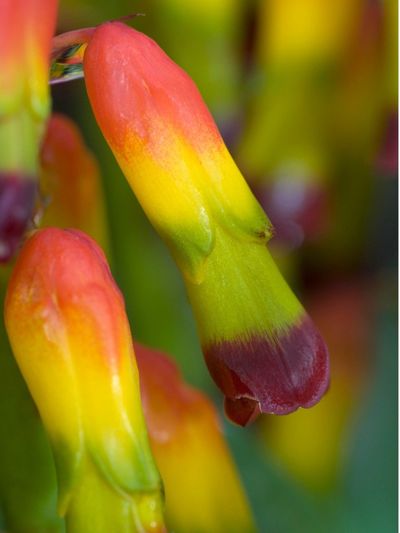What are Cowslips?
For our purposes, cowslips refer to Cape cowslip plants; members of the genus Lachenalia. Of the over 100 species, all are native to southern Africa and are related to the hyacinth. The name no doubt came about because many of the species have pale yellow blossoms.
Cowslips Flower Info
The genus name for Cape cowslip plants, Lachenalia, is so named for the eighteenth century Swiss botanist Wermer de Lachenal. The most commonly cultivated variety grown is Lachenalia aloides. There are a number of color combinations available within this species but the most commonly seen are those with tubular flowers of brilliant yellow accented with green and yellow. The foliage itself is somewhat of a marvel with its purple tiger striping. This species of Cape cowslip bulb originates in the winter rainfall region of South America. It puts on a spectacular show of color in the spring and then goes dormant during the hot summer.
How to Grow Cape Cowslip Bulbs
Despite its exotic look, Lachenalia plant care is surprisingly simple. The species is very adaptable and easy to grow. Bulbs may be planted in warmer climates such as Southern California and parts of Florida, directly into the ground. Otherwise, plant the bulbs in a container. Bulbs grown in the ground should be planted in sandy, well-draining soil. Cape cowslip plants grow during the winter months so they will need some moisture at this time and are naturally dormant during the hot summer months at which time they should not be watered, or very minimally. In cooler climates for container growing plant six to twelve bulbs; the more crowed the better. Put in a six inch (15 cm.) pot in well-draining potting mix. Be sure the container has drainage holes. Place the container in a frost free but well-lit exposure area.
Lachenalia Plant Care
If growing indoors, keep temperatures and light levels consistent. Swings in either will result in spindly plants and/or rot. In greenhouses or other highly heated interiors, Cape cowslip bulbs may require more watering then those planted in the ground. During the active growing stage feed plants with a diluted solution of fertilizer at watering. Use ½ teaspoon (2-3 g.) of a 20-20-20 NPK food per gallon of water. In the late spring to early summer allow the leaves to die back and the bulbs to dry out. At this point in time the bulbs may be divided and repotted.
